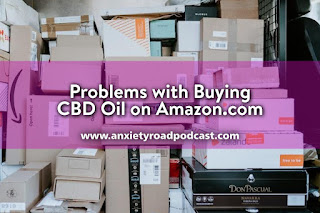In this episode, a look at some of the mental tele-health options that are in or will be introduced to the healthcare marketplace.
SAMSHA Disaster Distress helpline is 1-800-985-5990 for voice and text communication in English and Spanish. There are also other languages available and ASL video access is accessible via a smartphone. The SAMSHA website has a lot of information about disaster related mental health issues.
Links to other sites are provided for information purposes only and do not constitute endorsements.
Always seek the advice of a qualified health provider with questions you may have regarding a medical or mental health disorder.
This blog and podcast is intended for informational and educational purposes only. Nothing in this program is intended to be a substitute for professional psychological, psychiatric or medical advice, diagnosis, or treatment.
Next time, and throughout the year I'll show examples of a virtual mental health service, what it does, the pros & cons and other items of interest.
If you need support contact the National Suicide Prevention Lifeline at 988 or 1-800-273-8255, the Trevor Project at 1-866-488-7386 or text “START” to 741-741.
Resources Mentioned:
SAMSHA Disaster Distress helpline is 1-800-985-5990 for voice and text communication in English and Spanish. There are also other languages available and ASL video access is accessible via a smartphone. The SAMSHA website has a lot of information about disaster related mental health issues.
Telehealth.gov page Behavioral Health Care for Individual Care, this does a good job of describing the options in the the virtual mental health space at this time.
National Institute of Mental Health has a downloadable PDF that gives a basic description virtual mental health option.
If you don't know where to start but you have to talk to somebody, there is the NAMI HelpLine that offer support Monday through Friday, 10 a.m. – 10 p.m. eastern standard time in the U.S. Call 1-800-950-NAMI (6264), text "HelpLine" to 62640 or email at helpline@nami.org
Disclaimer:
Links to other sites are provided for information purposes only and do not constitute endorsements.
Always seek the advice of a qualified health provider with questions you may have regarding a medical or mental health disorder.
This blog and podcast is intended for informational and educational purposes only. Nothing in this program is intended to be a substitute for professional psychological, psychiatric or medical advice, diagnosis, or treatment.










